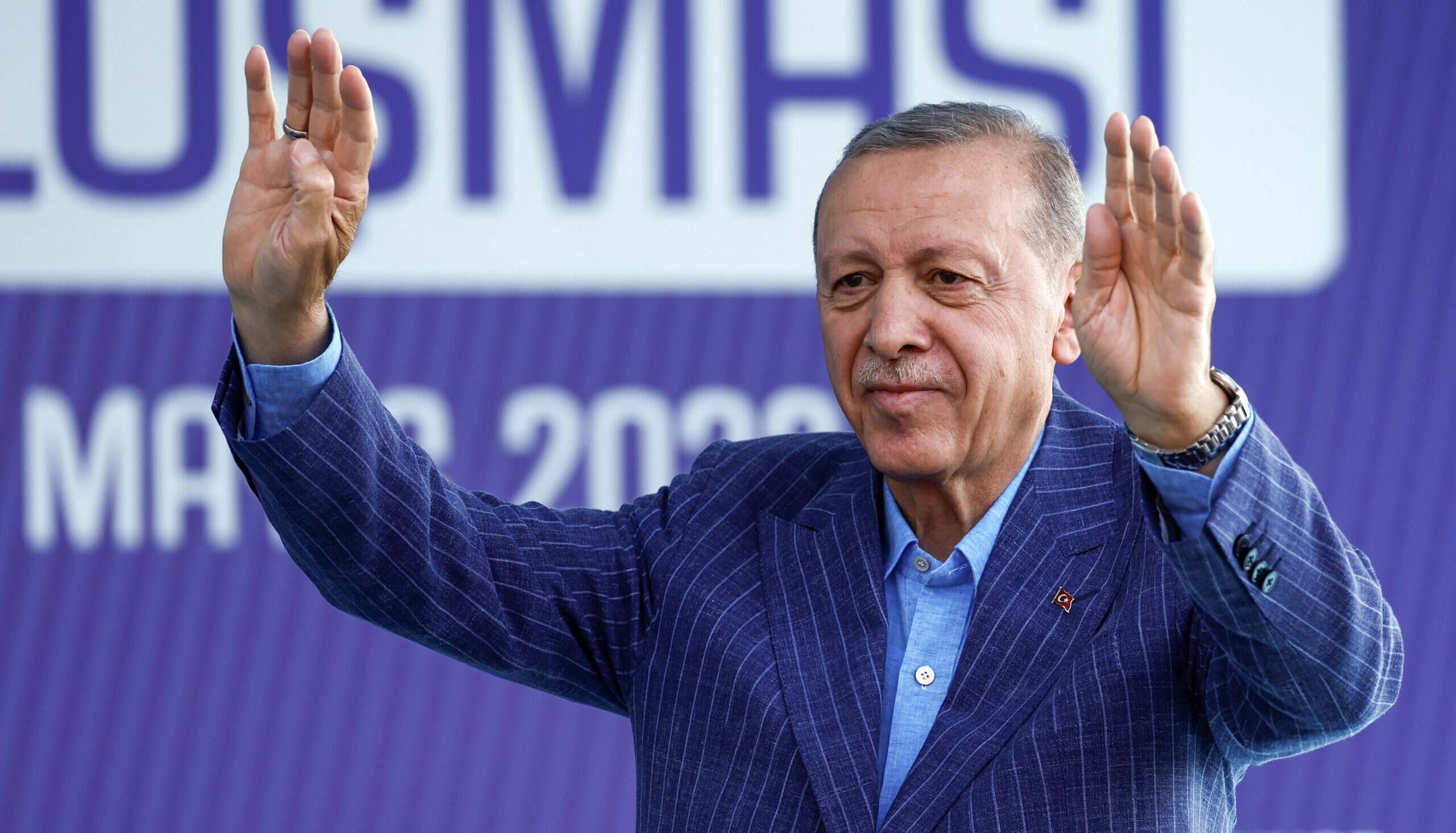By grinding out a narrow 52% victory in Sunday’s election, Recep Tayyip Erdoğan has cemented his legacy as Turkey’s most significant historical figure since Kemal Atatürk founded the republic exactly a century ago. While opposition supporters went into the elections with high hopes of overturning the strongman’s 20-year rule, by the second round Erdoğan’s eventual success had come to look inevitable. But that his victory was not absolutely certain highlights the nuances of the political system he has created: while the scales were always heavily weighted in his favour, Erdoğan still requires a significant degree of genuine acclaim from the voting public to maintain his legitimacy.
As the academic Howard Eissenstat noted back in 2021: “as egregious as Turkey’s authoritarian slide has been, Erdoğan portrays himself — and likely sees himself — as a democrat.” A closely-fought two-round election ending in a narrow victory is in this sense a better result for him than a landslide, preserving the illusion of meaningful democratic competition. But for all his faults and missteps, it is undeniable that Erdoğan retains significant popular support, evidently outweighing the fractious coalition of liberals, secular nationalists, Left-wing Kurds and far-Right ultranationalists assembled beneath Kemal Kiliçdaroğlu’s banner.
Certainly, Kiliçdaroğlu would have been no one’s first choice of candidate against such an entrenched opponent. Old, markedly uncharismatic, and from Turkey’s Alevi Muslim religious minority, Kiliçdaroğlu was a poor second best to Istanbul’s young and popular mayor Ekrem Imamoğlu, who Erdoğan managed to remove from the running early on through a conviction on charges of mocking election officials. Kiliçdaroğlu perhaps performed better than expected, but for Turkey’s opposition as well as its Western supporters, his campaign still fell distressingly short of their hopes.
The election has been widely interpreted as representing a new nationalist wave in Turkish politics, with both candidates relying on the support of fringe nationalist parties to widen their support base. This interpretation may be overstated, however. Turkey has always been a profoundly nationalistic country, as the Turkish political scientist Sinem Adar remarked recently: “there is this kind of narrative now, nationalism being the dip dalga [silent wave], but it is not. Nationalism is the sea itself.”
Yet for all that Turkey’s politics are a product of its unique historical path, many of the specific skirmishes of the election campaign, from Erdoğan accusing Kiliçdaroğlu of devotion to LGBT causes to fears of demographic change through mass immigration, echo the new political battlegrounds of Western democracies. As the Turkish analyst Selim Koru observes: “we live in the age of nationalism. Something about the political moment we live in across the world — be it the state of technology, economic current, or the geopolitical climate — seems to be conducive to far-Right nationalism.”
Viewed in this sense, the Turkish election is as much a local reflection of trends increasingly shaping all democratic systems as it is an exotic eastern spectacle. In Greece, the celebrity socialist Yanis Varoufakis was widely mocked for his petulant losing claim that Kyriakos Mitsotakis’s first-round victory was the result of the country’s “Erdoğanisation”, yet it highlighted a certain direction of travel across Europe and beyond. Through his stacking of the courts and media in his favour, the system of managed democracy Erdoğan has constructed has marked analogues in Central Europe.
Perhaps more strikingly, Anglo-Saxon conservatives increasingly believe the system is just as weighted against them, in a liberal inversion of Erdoğan’s heavy thumb tilting democracy’s scales. It is significant, after all, that the now-widely held concept of the “deep state” was borrowed from Turkey’s opaque and conspiratorial politics. For all its unique national quirks, in some ways Turkey’s “free but unfair” election indicates not the country’s divergence from liberal democracy’s mainstream, but democracy’s seeming eventual path.











Join the discussion
Join like minded readers that support our journalism by becoming a paid subscriber
To join the discussion in the comments, become a paid subscriber.
Join like minded readers that support our journalism, read unlimited articles and enjoy other subscriber-only benefits.
Subscribe